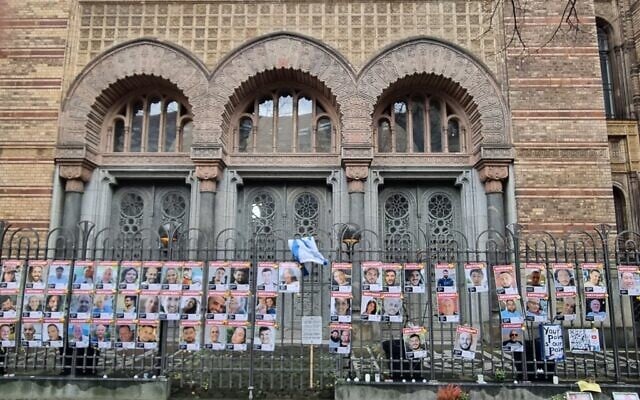


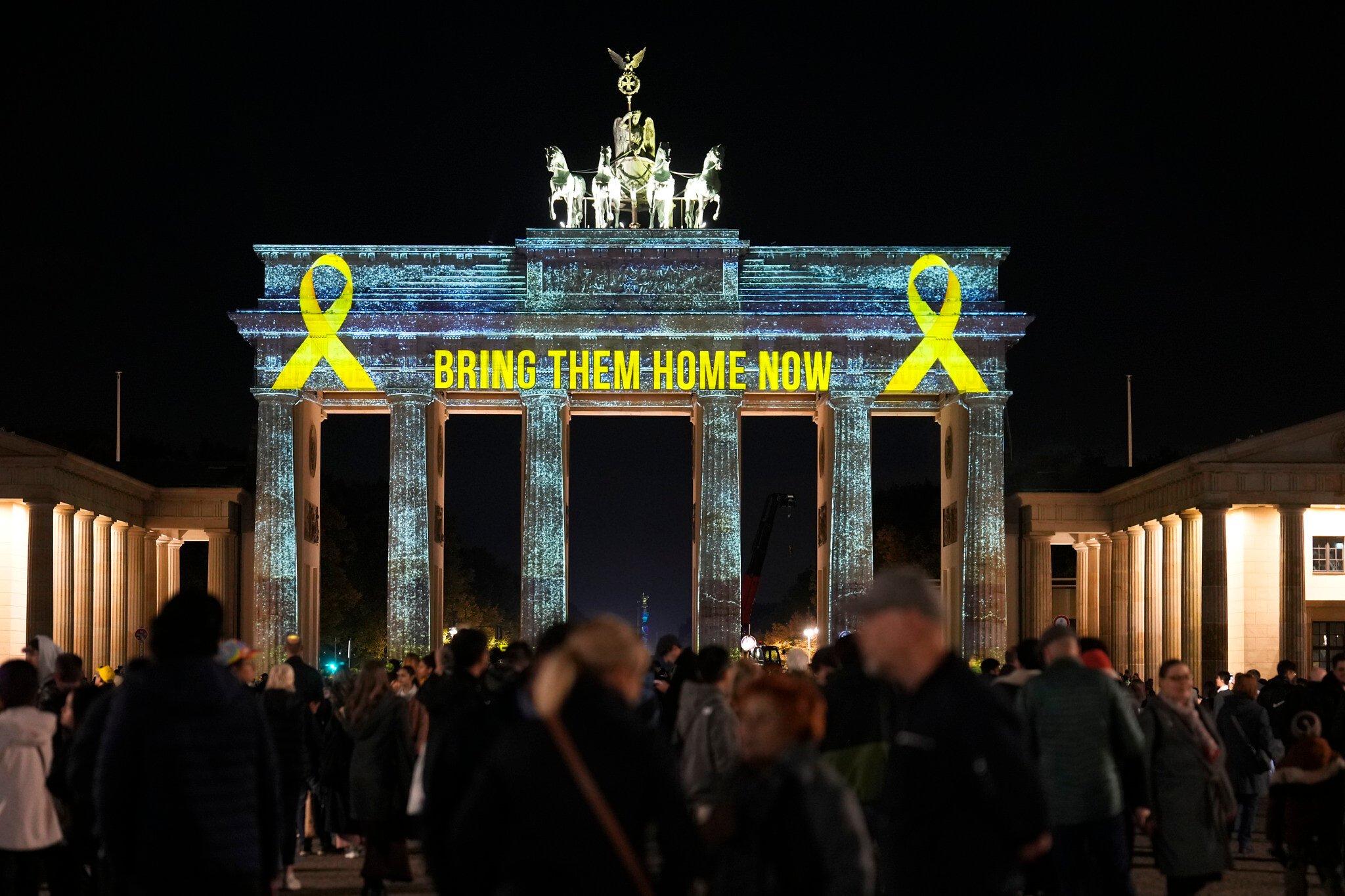
On October 7, 2023, teen boys Yagil and Or Yaakov were abducted from their home in Nir Oz, along with their father, Yair. In the chaos that followed, their uncle, Ziv Gome, launched a desperate effort that the family thought might help save them: securing German citizenship for the boys.
“[My sister] asked me to look into it,” Gome said of the boys’ mother. “I had inner opposition to the idea of European citizenship, but as soon as she asked, I did it.”
The family’s claim to citizenship was based on a formerly German great-grandmother who had survived a Nazi concentration camp — and who, under German law, was eligible to have her citizenship restored and passed down to her descendants.
The family had no idea if doing so would prove consequential, but they were grasping for whatever tools they had available.
“Nobody tells you what to do — you’re just trying to do everything you can,” Gome said.
Under normal circumstances, obtaining German citizenship is a lengthy and bureaucratic process that typically takes around two and a half years. But within just two weeks, Yagil and Or, 12 and 16 at the time, were granted citizenship.
When the boys were released during the temporary ceasefire in late November 2023, “they had German passports waiting for them,” their uncle said.
“The humanity of the German embassy…it wasn’t expected,” he said with emotion.
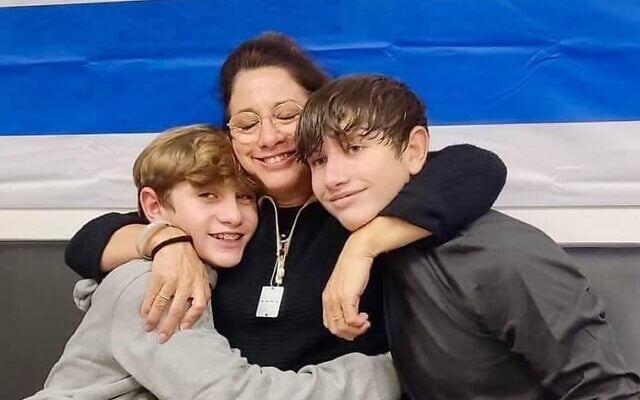
The Yaakov boys were among an unknown number of hostages and their relatives who were quietly granted German citizenship in the weeks after the attack — part of a little-publicized but intensive effort by Berlin to assist Israelis with proven citizenship claims.
Coordinated largely through the German Embassy in Tel Aviv, the process took place almost entirely under the radar, with no public announcements or political fanfare. For those involved, it was one of the few tangible lifelines amid the uncertainty and grief.
Within hours after Hamas launched its deadly October 7 onslaught, the German embassy in Tel Aviv says it began receiving desperate calls from Israelis and Germans who believed their loved ones had been taken into Gaza.
More than two dozen of the 251 hostages taken into Gaza that day were either German citizens or members of families with German roots eligible for citizenship, according to the embassy.
“Nobody became a German as a favor or out of pity,” Germany’s Ambassador to Israel Steffen Seibert told the Times of Israel in his office in Tel Aviv. “There are requirements that cannot be waived.”
But when the legal conditions were met, German authorities moved very quickly by all accounts.
Dalja Gimpel, a German-Israeli immigration lawyer based in Tel Aviv who worked with a family of hostages to help them obtain German citizenship, emphasized how exceptional the process was.
“The German authorities dealt with it immediately. They really knew what was at stake,” she said. “They were added to the [German] Foreign Ministry’s crisis unit list and treated as Germans.”
A number of those who received citizenship were eligible thanks to a recent legal reform that significantly expanded eligibility.
Until 2021, German citizenship for descendants of Holocaust victims had only been available to those whose parents, grandparents or great-grandparents had been stripped of their citizenship under the Nazi regime.
But that year, Germany widened the pool to include descendants of some Jewish victims of Nazi persecution who had never had citizenship, such as Polish Jews who lived in Germany before 1933 and were forced out because of their Jewish identity.
“So many people in Israel are descendants of Holocaust survivors or victims who were born in what used to be the German Reich,” said the ambassador. He pointed out that the high number of German citizens or descendants among the hostages was, in part, a matter of geography.
“The kibbutzim in the Gaza border area were largely Ashkenazi — very ‘Yekke,’” he said, using a slang term used to refer to German-speaking Jews. “That’s why so many of the hostages had German roots. If this had happened in Dimona, we would have seen a lot of hostages with North African ancestry instead.”
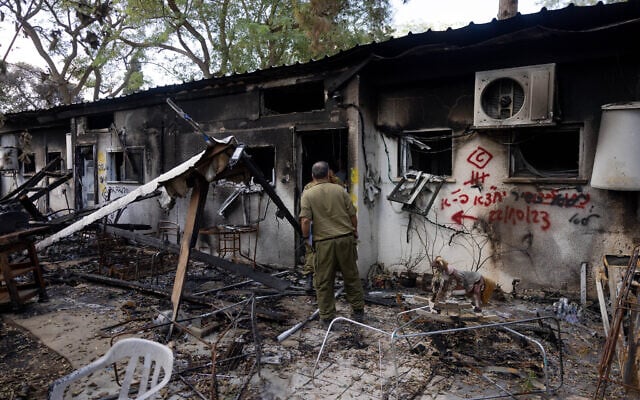
In some cases, the abducted individual was not a citizen, but others in their family were, and the embassy said it supported them as the family of a German citizen.
“In our minds, in our hearts, and on our lists, we had them, too,” Seibert said.
One such case was Tsahi Idan, who was kidnapped from his home on Kibbutz Nahal Oz and murdered in captivity.
“Tsahi was not German, but he was married to a German,” Seibert said. “We feel so close to his family, and we were hoping and hoping… but he was killed.”
Seven of the 50 hostages who remain in Gaza hold German citizenship, according to the embassy: Alon Ohel, Gali and Ziv Berman, Itay Chen, Rom Braslavski, Tamir Adar, and Tamir Nimrodi. Chen, who also holds US citizenship, and Nimrodi are believed to be dead, but the rest are still thought to be alive.
Seibert is emphatic that Germany sees the seven individuals as its responsibility, regardless of the fact that they may not have resided in Germany. “It doesn’t matter if you live in Rehovot or Dusseldorf,” he said. “If you’re a German citizen, then I am your ambassador. This is your embassy. Berlin is your government. And we will try everything we can to get you free.”
The German embassy estimates that at the peak of the war, there were close to 30 hostages with German citizenship. About 14 hostages with German citizenship were released during the first ceasefire agreement in November 2023.
Others were freed in later deals or were killed in captivity and their bodies were recovered by soldiers.
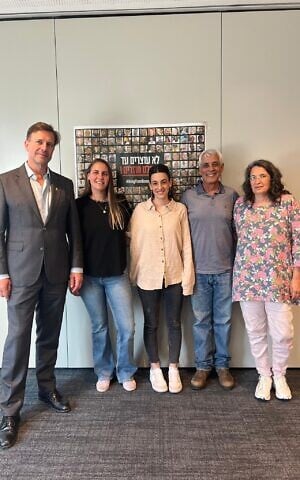
Arbel Yehoud, who was kidnapped from Nir Oz and spent 482 days in captivity. received her German passport, expedited during her captivity, upon her release during the February ceasefire deal. Four of her nieces and nephews, whose father Dolev was murdered on October 7, also received citizenship.
Yair Yaakov, the father of Yigal and Or, was also killed in captivity. Though he did not have German citizenship, the embassy nonetheless saw itself as responsible for him as the father of German children. His body was recovered by soldiers in June.
Oded Lifshitz was kidnapped from Nir Oz on October 7, along with his wife, Yocheved, who was released two weeks later. He was murdered in captivity, and his body was returned to Israel as part of the February ceasefire deal.
He never knew that he, his children, and grandchildren had been granted German citizenship, let alone that the German ambassador delivered a eulogy at his funeral, in Hebrew no less.
Beyond the passport itself, Lifshitz’s grandson Daniel said that granting his grandfather German citizenship gave the family access to governments, media, and a new diplomatic front. As German citizens, they were not just pleading for help, but were engaging with influential governments that were obligated to help them.
“It opens doors to the German government, the European Council, and other international players who have leverage over Hamas and, when needed, the Israeli government,” Lifshitz said.
Several German ministers have paid visits to Israel since October 7, during which they have visited with families of German hostages.
On Friday, German Foreign Minister Johann Wadephul met with the families of the seven German-Israeli hostages being held by Hamas in Gaza, according to the German embassy in Tel Aviv, where the meeting took place.
According to the Hostages and Missing Families Forum, Wadephul expressed “Germany’s commitment to the release of all the hostages,” including the German hostages.
Relatives of hostages with American, Argentinean, French, Russian and other citizenships have also attempted throughout the war to leverage those ties to work for their loved ones’ release.
Sometimes this has taken the form of awareness campaigns, but families have also used access to governments outside of Israel to lobby for pressure on Prime Minister Benjamin Netanyahu to agree to a ceasefire and hostage release deal, or to bypass Jerusalem altogether.
Soon after the October 7 kidnappings, family members of German hostages organized a delegation to Berlin, where they met with ministers and officials to discuss efforts to free their loved ones.
The visit also included the symbolic opening of a “hostage square” in the city center near the site where Jewish books were once burned during the Nazi era.
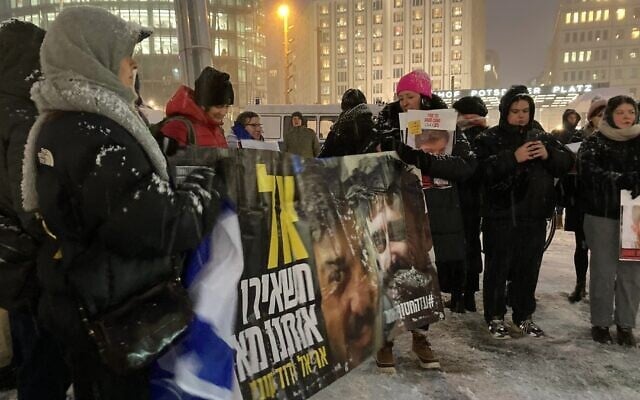
Lifshitz said that during the trip, he met with Gerhard Conrad, the German intelligence expert who helped negotiate with Hamas and Hezbollah for prisoner swaps with Israel, including the Gilad Shalit deal.
Germany’s historical involvement in negotiations with groups like Hamas and Hezbollah has shaped its diplomatic approach to the current hostage crisis. According to a source with knowledge of diplomatic efforts, German officials have engaged intensively with Qatar and Turkey through diplomatic channels to apply pressure and advance negotiations.
“We’re constantly speaking with Qatar, Turkey, Egypt, the US, Israel — anyone involved in negotiations,” said Siebert. “Our demand is clear: do everything to bring them home.”
As the largest economy in Europe and the world’s third-largest overall, Germany wields significant diplomatic influence, both through its economic clout and its leadership role in the European Union.
Qatar’s substantial economic investments extend to Germany and contribute to the emirate’s strong political standing in the Western world, giving Berlin an important conduit to a main player in hostage negotiations.
The source told The Times of Israel that while Germany lacks the hard leverage that the US alone is able to exert in negotiations, its ongoing positive relationship with Qatar remains important and serves as a key incentive for Doha to engage with Berlin and help free the hostages.
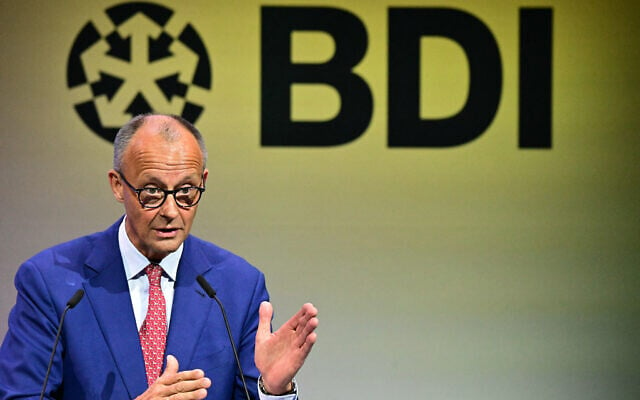
Lifshitz praised Germany’s diplomatic efforts, singling out Seibert as a tireless advocate.
“He’s the world’s top diplomat supporting the hostages — a beacon of hope. If I could hand him control of the negotiations, I would,” he said.
Still, he lamented Germany’s absence from direct negotiations. “It’s frustrating they aren’t at the table. Qatar, Egypt, and the US are leading talks, but not Germany,” he said, “A German-Turkish channel could do better.”
Whatever influence Germany has, it can’t secure the hostages’ release on its own, lacking the direct leverage over Hamas that the US and some others have. Earlier this year, for instance, Hamas released dual Israeli-American hostage Edan Alexander as a gesture to President Donald Trump, and the group has also freed Russian hostages as a gesture to Russian President Vladimir Putin.
“Only the Americans can do that, because only they have something to offer to Hamas, which is their unique influence on the Israeli government, especially under President Trump,” Siebert said. “Ours cannot be compared to Washington.”
Beyond the pursuit of German citizenship by hostage families, there has been a rapid rise in interest among the greater Israeli population in receiving German citizenship.
Gimpel, who has spent more than 15 years specializing in German naturalization, particularly for descendants of Jewish victims of Nazi persecution, said demand had skyrocketed over the past few years, first during the 2023 judicial overhaul crisis and again after October 7.
“We always see a spike in demand when there is a war or social unrest,” she said. Her office has processed nearly 4,000 applications since 2021, and there’s currently a waitlist.
According to Gimpel, the motivations are varied. “Some want the symbolic recognition. Some want the travel benefits. But in the last year, there’s a growing sense that another passport offers more than mobility — it has become a form of security, emotional reassurance, a kind of life insurance policy,” she said.
That surge in demand has brought with it a complicated emotional reckoning. There is an irony in the fact that descendants of Holocaust survivors who fled or were expelled from Germany now find themselves turning back to Berlin for protection.
For some, there is a sense of justice and a form of historical redress in seeing the German embassy step up to safeguard Jewish lives.
But for others, it is a painful reminder that the state founded to ensure Jewish safety has not lived up to that promise, forcing its citizens to seek shelter in foreign lands once again.

“I would have gotten [my grandfather] any citizenship I could have,” Lifshitz said. “Given our history as descendants of survivors, it felt like coming full circle.”
Amid this broader trend, Seibert’s role has shifted, with his job representing Berlin in Israel somewhat subsumed by his position as an advocate for Germans caught in an international trauma.
In the months since October 7, he has become a regular presence at hostage rallies, especially the weekly vigils in Tel Aviv’s Hostage Square, and has built close relationships with the families of the German citizens still held in Gaza.
“I have the greatest respect and affection for them,” Seibert said of the hostage families. “These are very special people.”

But the ongoing war and the deadlock in ceasefire talks weigh heavily.
“I find it infuriating how long it’s taking, because these people don’t have the time,” he said.
That idea has been hammered home in the last few days with the release of footage showing Rom Braslavski, one of the seven German hostages, looking emaciated and in poor health, alongside a separate video of hostage Evyatar David, also appearing starved, digging what he says is his own grave.
On Sunday, German Chancellor Friedrich Merz said he was “appalled by the images.”
Merz, who had also spoken out against Israeli policies in Gaza blamed for alleged famine-like conditions, added that “there is no alternative to a ceasefire,” to free the hostages, a sentiment shared by Seibert.
“Of course, Hamas should have released them unconditionally long ago – and could still do it today, but the Hamas military leaders are fanatical and murderous terrorists, so the only practical way out is for the war to end,” he said. “That’s the only way the hostages can be freed, and the killing and suffering of Gazan civilians can end, too. That logic is visible to everyone.”


